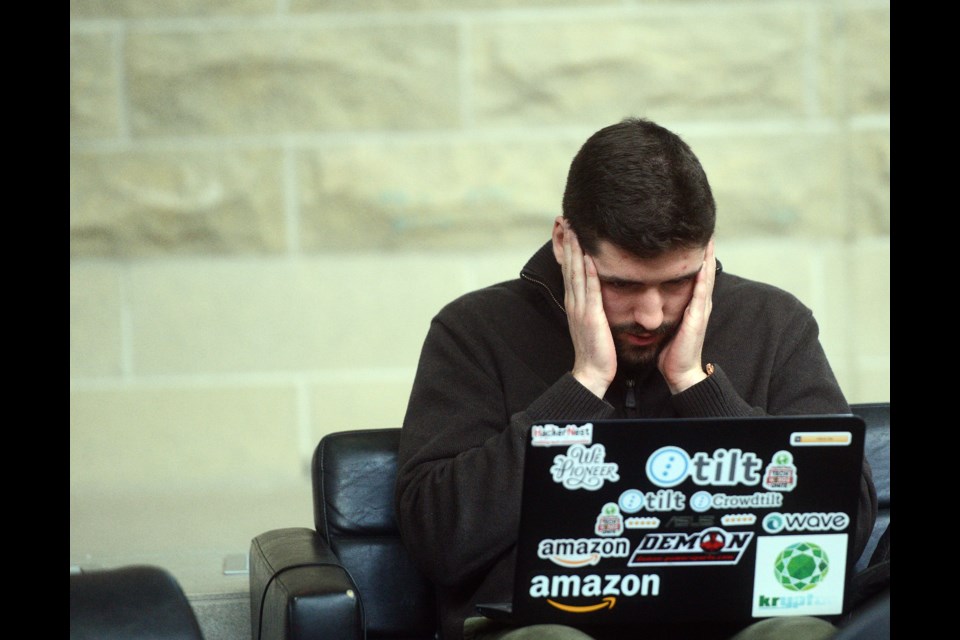Proximity, a positive take on the popular dating site Tinder, only the hook-ups would be for people to discuss mental health issue.
That was just one of the many ideas generated at a hackathon at the University of Guelph on the weekend. Guelph Hacks for Mental Health saw U of G students team up for a 36-hour session to design concrete tools that would support positive mental health on campus
“Our idea is to make an app like Tinder, but for friends, so that you can find people of similar interests that you can potentially find friendship with,” said Joao Bernardo. “We’re thinking of calling it Proximity.”
The app would have a reward program for connecting with other students and users could identify mental health topics they would want to talk about.
“You would have to take a module about the subject so you would have some background to support the conversation,” said his colleague Alysa Woodhouse.
Roughly 60 graduate and undergraduate students took part in Guelph Hacks for Mental Health, mostly from the computer science and engineering programs but also from a wide range of other disciplines.
The event took place in the Summerlee Science Centre Atrium.
They developed ideas, wrote computer programs, then presented their work to a panel of seven judges on Sunday afternoon.
The winner was "Guelph Cares," an app that allows students to connect with people who have experience in mental health management that matches the students needs. It could include peers who have received mental health training through the Student Support Network on campus, or professionals in the mental health domain.
“The idea is that they’re here to develop ideas that will support positive mental health on campus,” said organizer Dan Gillis, an associate professor in the computer science department.
“They have to identify a problem that’s based in reality. We don’t want them developing solutions and just shiny widgets, we want them to develop something that’s actually going to be useful for campus,” Gillis said.
Ideas ranged from tools to improve communication about mental health, a back-door program that would alert sudden negative fluctuations in a student’s marks (a potential indicator or precursor to mental health issues) and the aforementioned platonic Tinder for mental health app.
“They’re given a broad scope of tools that they can develop. It doesn’t have to be an app or a web site,” Gillis said.
Some of the better ideas could find their way to being utilized on campus.
“The administration is quite interested in what comes out of this. Ideas that look like they have some merit or look like they could do something positive, they want to make sure we keep them and develop them so that they’re actually implemented on campus,” Gillis said.
There were prizes: $4,000 for first place, $2,000 for second and $1,000 for first, plus a number of donated prizes.
